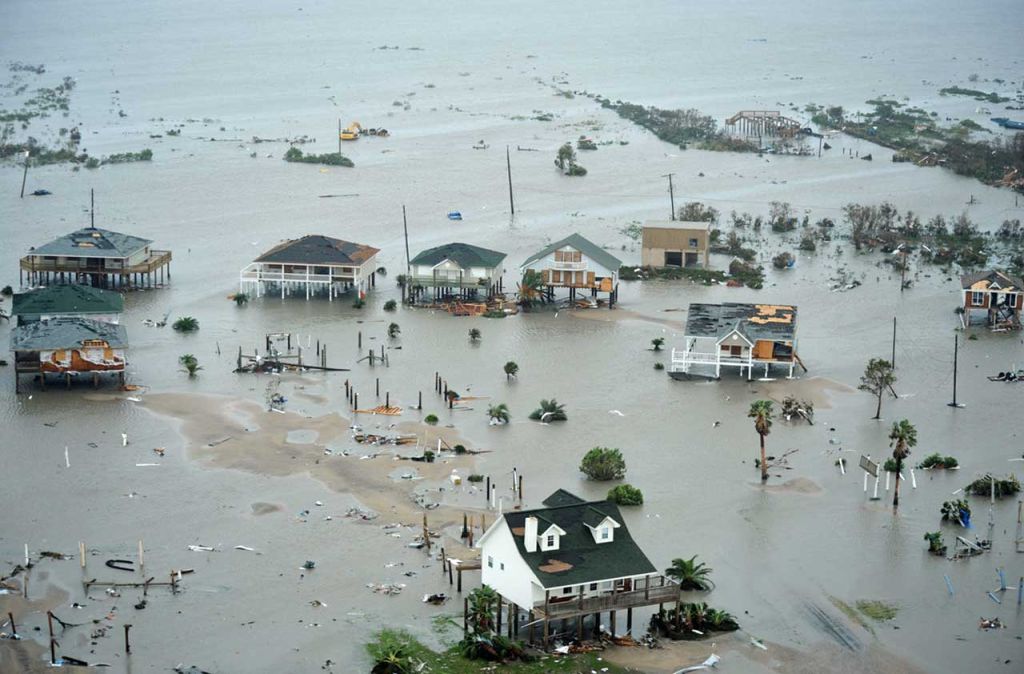Home Insurers To Be Scrutinized In Climate-Risk Study
For the first time, property insurers will send data, including recent coverage pullbacks in several states, to the Treasury Department for a climate-related financial risks study.

Esther D’Amico

Profit and prosper with the best of Kiplinger's advice on investing, taxes, retirement, personal finance and much more. Delivered daily. Enter your email in the box and click Sign Me Up.
You are now subscribed
Your newsletter sign-up was successful
Want to add more newsletters?

Delivered daily
Kiplinger Today
Profit and prosper with the best of Kiplinger's advice on investing, taxes, retirement, personal finance and much more delivered daily. Smart money moves start here.

Sent five days a week
Kiplinger A Step Ahead
Get practical help to make better financial decisions in your everyday life, from spending to savings on top deals.

Delivered daily
Kiplinger Closing Bell
Get today's biggest financial and investing headlines delivered to your inbox every day the U.S. stock market is open.

Sent twice a week
Kiplinger Adviser Intel
Financial pros across the country share best practices and fresh tactics to preserve and grow your wealth.

Delivered weekly
Kiplinger Tax Tips
Trim your federal and state tax bills with practical tax-planning and tax-cutting strategies.

Sent twice a week
Kiplinger Retirement Tips
Your twice-a-week guide to planning and enjoying a financially secure and richly rewarding retirement

Sent bimonthly.
Kiplinger Adviser Angle
Insights for advisers, wealth managers and other financial professionals.

Sent twice a week
Kiplinger Investing Weekly
Your twice-a-week roundup of promising stocks, funds, companies and industries you should consider, ones you should avoid, and why.

Sent weekly for six weeks
Kiplinger Invest for Retirement
Your step-by-step six-part series on how to invest for retirement, from devising a successful strategy to exactly which investments to choose.
The Treasury Department’s Federal Insurance Office (FIO) is taking the next step in its plan to collect data from insurers to assess climate-related financial risks facing homeowners and others nationwide.
The agency has asked the Office of Management and Budget (OMB) to approve its first-ever data collection project, which was proposed last year and aims to help the government assess the potential for major disruptions of private insurance coverage in regions that are particularly vulnerable to climate change. The FIO said the information would also help it assess both the availability and affordability of insurance for homeowners and other insured entities.
The data to be collected includes previously unavailable insurance down to the zip code level from the largest home insurance providers that collectively underwrite 70% of homeowners insurance premiums nationwide, the FIO said. The data to be collected is critical to understanding how climate-related financial risks impact individuals and families across state markets, particularly given recent insurer pullbacks and surging premiums in several states, it added.
From just $107.88 $24.99 for Kiplinger Personal Finance
Become a smarter, better informed investor. Subscribe from just $107.88 $24.99, plus get up to 4 Special Issues

Sign up for Kiplinger’s Free Newsletters
Profit and prosper with the best of expert advice on investing, taxes, retirement, personal finance and more - straight to your e-mail.
Profit and prosper with the best of expert advice - straight to your e-mail.
Rising insurance costs, limits on coverage and outright insurer withdrawals in various regions continue to plague homeowners in the aftermath of climate-related disasters. Last month, an S&P Global Market Intelligence report found that several major home insurer premiums rose by double digits this year and by nearly 15% at Farmers Insurance Group and United States Automobile Association (USAA).
“Americans are facing growing challenges from extreme weather events caused by climate change,” Treasury Secretary Janet Yellen said in a statement about the FIO collection project. “The resulting data and analyses will help policymakers inform potential approaches to improving insurance availability and affordability for consumers.”
In a June 2023 FIO report — Insurance Supervision and Regulation of Climate-Related Risks — the agency pointed to the importance of current efforts to incorporate climate-related risk into state insurance regulations and supervision. However, it said that these efforts are fragmented across states and limited in several critical ways.
Public comments welcome
The data collection project is in response to President Joe Biden’s May 20, 2021 executive order on climate-related financial risk. The order called for FIO to “assess, in consultation with states, the potential for major disruptions of private insurance coverage in regions of the country particularly vulnerable to climate change impacts.
The FIO invites the public to submit comments on its OMB request by the end of November.
Related Content
Profit and prosper with the best of Kiplinger's advice on investing, taxes, retirement, personal finance and much more. Delivered daily. Enter your email in the box and click Sign Me Up.

Joey Solitro is a freelance financial journalist at Kiplinger with more than a decade of experience. A longtime equity analyst, Joey has covered a range of industries for media outlets including The Motley Fool, Seeking Alpha, Market Realist, and TipRanks. Joey holds a bachelor's degree in business administration.
- Esther D’AmicoSenior News Editor
-
 Nasdaq Leads a Rocky Risk-On Rally: Stock Market Today
Nasdaq Leads a Rocky Risk-On Rally: Stock Market TodayAnother worrying bout of late-session weakness couldn't take down the main equity indexes on Wednesday.
-
 Quiz: Do You Know How to Avoid the "Medigap Trap?"
Quiz: Do You Know How to Avoid the "Medigap Trap?"Quiz Test your basic knowledge of the "Medigap Trap" in our quick quiz.
-
 5 Top Tax-Efficient Mutual Funds for Smarter Investing
5 Top Tax-Efficient Mutual Funds for Smarter InvestingMutual funds are many things, but "tax-friendly" usually isn't one of them. These are the exceptions.